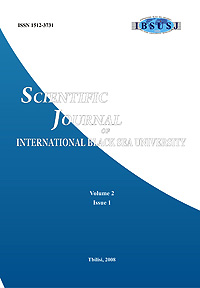The Stabilizing Role of Fiscal Policy: Theoretical Background and Empirical Evidence
Keywords:
government budget, stabilizing fiscal policy, Keynesian vs. non-Keynesian effectsAbstract
Тhе study sheds light on the stabilizing role of government budget. It finds that in Bulgaria both taxes and government spending are negatively related to the real growth rate. This leads to the conclusion that budgetary expenditure influence output in a non-Keynesian fashion. The size of discretionary fiscal impulse is the main determinant of the non-Keynesian outcome. The results imply that although the balanced budget ensures the sustainability of public finances, it does not guarantee a growth-stimulating effect in case of a large government sector. Abstention from an active fiscal policy would allow the automatic stabilizers to operate freely and to counteract the negative shocks to the economy.Downloads
Additional Files
Published
2008-05-08
Issue
Section
Legal and Social Sciences, Economics
License
Authors who publish with this journal agree to the following terms:
- Authors retain copyright and grant the journal right of first publication with the work simultaneously licensed under a Creative Commons Attribution License that allows others to share the work with an acknowledgement of the work's authorship and initial publication in this journal.
- Authors are able to enter into separate, additional contractual arrangements for the non-exclusive distribution of the journal's published version of the work (e.g., post it to an institutional repository or publish it in a book), with an acknowledgement of its initial publication in this journal.
- Authors are permitted and encouraged to post their work online (e.g., in institutional repositories or on their website) prior to and during the submission process, as it can lead to productive exchanges, as well as earlier and greater citation of published work (See The Effect of Open Access).

